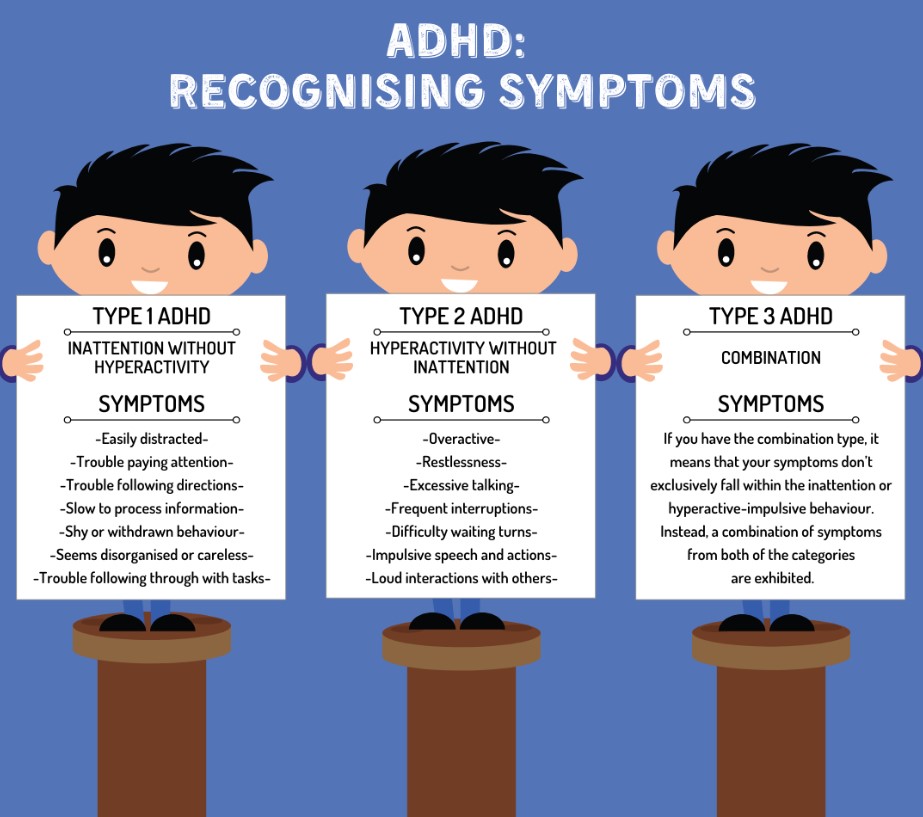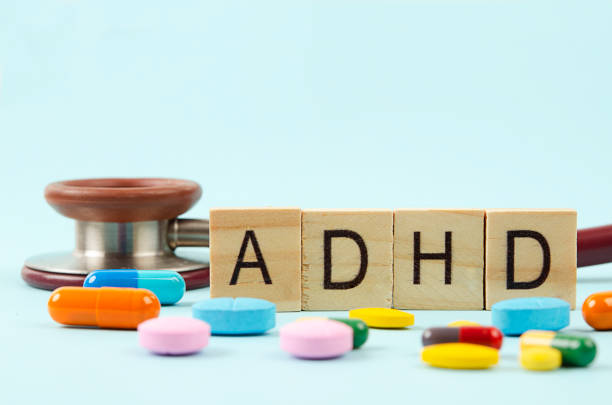Attention-deficit/hyperactivity disorder (ADHD) is a condition that affects around 5 percent of children and teens. If you’re one of these people, it’s important to know how to treat ADHD on your own so that you can get the most out of life. In this article, we’ll discuss some tips for managing ADHD on your own so that you can live a productive and satisfying life.
ADHD Types

There are many types of ADHD, and not all require medication. Clinical trials for medication for ADHD have been disappointing overall, with a lack of significant benefits over placebo. However, there are some things you can do on your own to help manage symptoms.
Some tips to help manage ADHD on your own:
- Get enough sleep: People with ADHD tend to suffer from insomnia, so make sure to get a good amount of sleep each night. Try to avoid caffeine and other stimulants late in the day to help avoid energy crashes.
- Exercise: Aerobic exercise has been shown to improve focus and concentration in people with ADHD. A moderate amount of exercise is actually beneficial, as it releases endorphins which calm the brain and help improve mood.
- Limit screen time: Screens are great for entertainment, but they can also be addictive and lead to excessive use. Try to limit screen time to an hour or less each day. This includes TV, computer screens, smartphones, etc.
- Avoid stress: Stress can worsen ADHD symptoms. Try to relax and take some time for yourself every day to de-stress.
Risks and Benefits of Treating ADHD
ADHD is a mental disorder that affects attention, hyperactivity and impulsiveness. It can be a very disruptive disorder for families and individuals, and can often be difficult to manage on one’s own. There are many risks and benefits associated with treating ADHD, but it is important to weigh the risks and benefits of each option before making a decision.
The biggest risk associated with treating ADHD is that the treatment may not work. There is no cure for ADHD, so any attempt to treat it will only alleviate the symptoms to some degree. Additionally, some of the available treatments are controversial and have been shown to have side effects. It is important to weigh the risks and benefits of each treatment option before choosing one.
There are also benefits associated with treating ADHD. Treating it can improve functioning in everyday life, improve school performance, and reduce symptoms associated with other disorders such as anxiety and depression. An ADHD treatment online can be very cost effective and convenient, and many people find that it is a viable option for managing their disorder.
ADHD Medications

There is no one-size-fits-all answer to this question, as the best ADHD medication for each individual will vary depending on their specific symptoms. However, some common ADHD medications include Ritalin and Methylphenidate pills.
Both of these medications are typically prescribed in pill form and need to be taken regularly in order to be effective. It is important to keep in mind that ADHD medications should not be used in place of proper parenting or educational interventions.
Behavioral Treatment for ADHD
ADHD is a disorder that often requires behavioral treatment. Behavioral treatment for ADHD typically includes medications, therapy, and educational interventions. Here are some tips for self-treating ADHD:
- Follow a daily routine. Doing things in a specific order helps to keep your mind focused.
- Set goals. Having specific goals will help you stay motivated and on track.
- Get organized. Being able to keep your belongings in an orderly fashion can help you focus and remain productive.
- Take breaks. If you find yourself feeling overwhelmed or stressed, take a break to relax and come back fresh again later on.
What Are the Signs and Symptoms of ADHD?

ADHD is characterized by problems with attention, hyperactivity, and impulsiveness. Symptoms can vary from person to person, but typically include difficulty staying focused on tasks, trouble controlling behavior, and a lack of impulse control. Some children may also have difficulty organizing their thoughts or remembering information.
How Can You Treat ADHD on Your Own?
If you are like many people, you may be wondering how to treat ADHD on your own. Fortunately, there are a number of ways that you can manage this condition on your own. Here are some tips:
- Consult with a mental health professional if you feel that you need extra support. They can help you develop a treatment plan that is tailored to your specific needs.
- Try cognitive behavioral therapy (CBT). CBT is a type of treatment that helps change the way that a person thinks and behaves. It has been shown to be effective in treating ADHD.
- Use the medication as a last resort. If all other treatments fail, medication may be necessary to control ADHD symptoms. There are a number of different medications available that can be effective in treating ADHD, so it is important to speak with your doctor about what might work best for you.

Conclusion
If you are struggling to control your ADHD symptoms on your own, it might be helpful to seek out help from a mental health professional. However, there are also many treatments that can be administered on an individual basis, which we have discussed in this article.
If you think that medication isn’t for you or if medications aren’t working well for you, consider trying one of the following treatments: cognitive behavioral therapy (CBT), omega-3 supplements, and meditation/mindfulness exercises.
Depending on the severity of your ADHD and the resources you have access to, there are different ways that you can address the condition. Some people find that they need medication to manage their symptoms; others find that cognitive behavioral therapy (CBT) or mind/body exercises work well for them.
If self-treatment isn’t working for you or if you want to consult with a professional about treatment options, be sure to check out some recommended psychiatrists and psychologists who specialize in ADHD.




